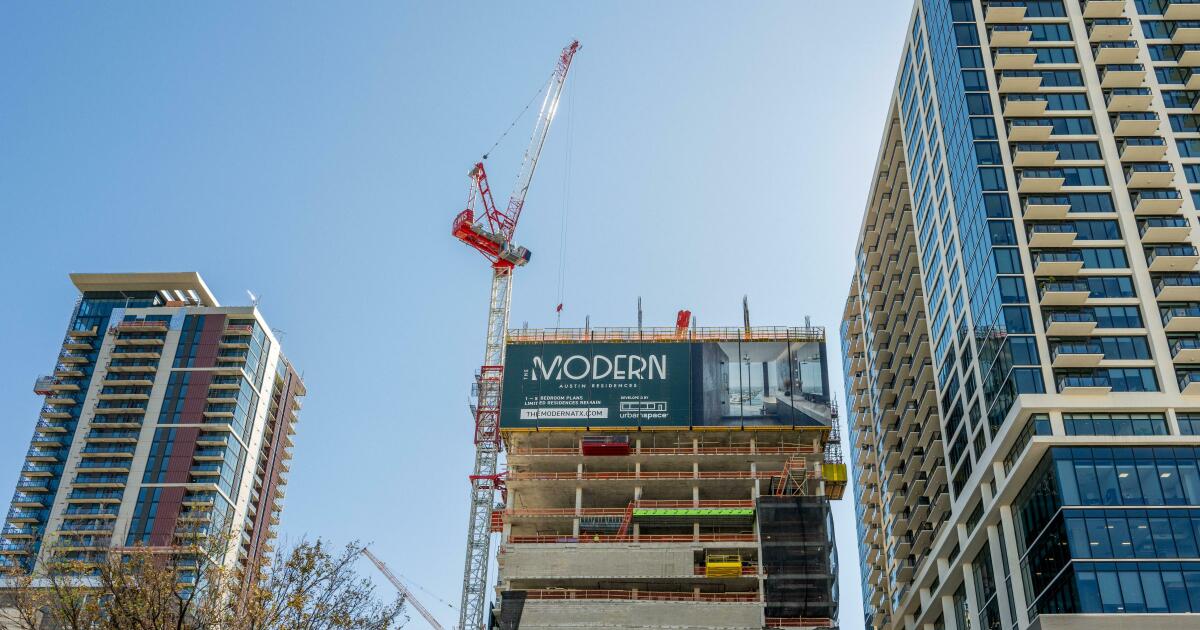The city council in Austin, Texas recently proposed something that could seem like political Kryptonite: getting rid of parking minimums.
Those are the rules that dictate how much off-street parking developers must provide — as in, a certain number of spaces for every apartment and business.
Around the country, cities are throwing out their own parking requirements – hoping to end up with less parking, more affordable housing, better transit, and walkable neighborhoods.



This isn’t setting a parking maximum. It just says you don’t have to build more parking than you feel like paying for. Businesses trying to attract people who drive will still be allowed to build enough parking for all their customers. However they won’t have to pay for even more than they need which is often the case now. Many parking lots are half full on the busy days, so they can replace part of that lot with another business and better use that space and save money.
Of course businesses near downtown will probably decide most customers are not driving already (traffic is bad and parking is hard to find) so why not get rid of their parking lots completely to better serve their customers. However for every rural customer (who has to drive at least part way) lost several urban customers are gained so this is worth it for them.
Right, my point isn’t that the businesses will die because there’s no rural or suburban customers, it’s that urban customers will less and less run into rural or suburban customers, leading to potentially way less interactions between different ways of life. I guess it probably doesn’t matter if rural and suburban people shop at Wal-Mart and never see a bodega and the reverse is true for urbanites, but if you never meet in a bar or whatever it means even more social bubbles than we already have. I’m not sure the idea of off street parking minimums were a smart policy though.
But a lot of rural and suburban places make themselves actively hostile to anyone that doesn’t have a car as a policy choice.
I’m not sure the rural places are actively hostile to people without a car - they’re as accessible as they were in the 1800s if you don’t have a car - a lot of hoofing miles to get somewhere. It’s a lot more practical there with a car, but I see plenty of people walking and biking where I live though usually for exercise. I’d like to see more uber / lyft but I have to guess they don’t proliferate for the same reason busses don’t go out there - not enough people using them to make it cost effective. Things like Casino complexes out in the boonies with enough draw do run special busses from cities.
Suburban is actually much worse - I’ve never seen people walking in a lot of places because that would be a death wish, same with bicycles. While I personally think Suburban is kind of the worst of both worlds, for some reason a large number of people like it but that is indeed enabled by cars.I imagine a lot of suburbanites would move to the city if cars were to go away. At least if the city was affordable.
An interesting read on the topic is The Color of Law by Richard Rothstein. The TL;DR is that an absolutely gobsmacking portion of the reason that a lot of people like the suburbs is that they were made artificially cheap and financed by government-backed loans to white people, by government policy explicitly formulated to keep minority groups out.
A lot of the rural roads have been made to allow for faster driving speeds, making these roads more dangerous for pedestrians. You also have the removal of mass transit linking these communities to cities, further cutting them off.
This is a change that needs to happen in junction with mixed use zoning, investments in public transit, and better development patterns in both urban and suburban environments to incentivise and allow people to comfortably make those trips without a car.
I do acknowledge that there will still be those who either insist on driving or don’t currently have a reasonable alternative but don’t think that our cities should be catering to them as much as they do right now with parking minimums.
I actually agree with this in general. I’d just like to see some more park and ride or nicer big parking garages in the small cities to acknowledge that anyone from the surrounding communities has to drive to get to the city and then needs to put that car somewhere while shopping, eating, whatever. Though for the park and ride we’d need a lot more bus service from there to the city, which I guess is hard to fund.